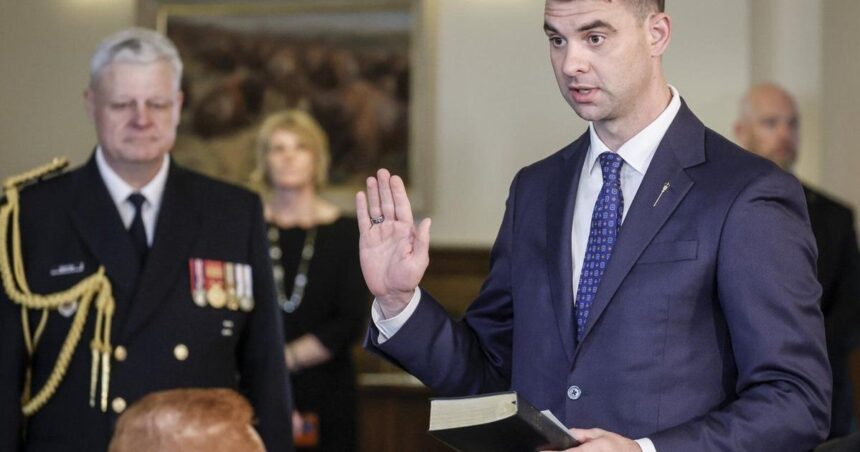When the lights dim after each council meeting in Medicine Hat, Alberta, the real political drama isn’t ending—it’s just moving backstage.
A newly released 50-page report on Medicine Hat’s city council has pulled back the curtain on what many locals had long suspected: a deeply divided municipal government mired in dysfunction. As someone who’s covered political tensions across provincial legislatures for years, I’ve rarely seen such a stark assessment of a council’s internal workings.
The report, compiled by Edmonton lawyer Shores Jardine following months of interviews and investigation, describes a “culture of fear” permeating city hall. Staff members report dreading council meetings, with some admitting they’ve developed anxiety about interacting with certain councillors. One civic employee confided that they “physically shake” before presenting to council—hardly the environment for effective municipal governance.
What struck me most while reading through the findings was how the fractures have solidified into entrenched camps. The investigation revealed a council split into two distinct factions, with Mayor Linnsie Clark frequently finding herself at odds with a bloc of councillors. This isn’t merely philosophical disagreement—it’s manifested in hostile exchanges, public criticism, and what the report describes as “disrespectful behaviour” that has rippled throughout the organization.
“The tensions have become so normalized that staff prepare differently depending on which councillor they’re addressing,” explained former city manager Cal Koskowich, who spoke with me about the report’s findings. “That’s not just inefficient—it creates parallel systems of governance within the same building.”
The investigation was initiated following concerns raised by Alberta Municipal Affairs about council conduct, including several code of conduct complaints. Beyond interpersonal conflicts, the report raises alarming questions about potential violations of closed meeting rules and inappropriate sharing of confidential information—serious matters in any level of government.
One city staffer, speaking on condition of anonymity, told me the findings merely formalize what employees have experienced for years. “We’re not just talking about personality conflicts. When leadership is this divided, policy stalls, projects get politicized, and ultimately, the citizens lose.”
The Medicine Hat News has documented numerous contentious council meetings over the past two years, including heated exchanges between Mayor Clark and several councillors. What the local coverage couldn’t capture, however, was the behind-the-scenes impact on governance and city operations.
Medicine Hat isn’t alone in experiencing council discord. Municipal politics often sees sharper personal conflicts than provincial or federal arenas, partly because representatives work in such close proximity. However, the report suggests this case goes beyond typical disagreements, with investigators recommending mandatory training in respectful communication and proper governance procedures.
The public reaction in Medicine Hat has been mixed but passionate. At a local coffee shop just blocks from city hall, I spoke with longtime resident Eleanor Jamison, who expressed frustration but not surprise. “We elected them to solve problems, not create new ones,” she said. “My property taxes went up 4.6% last year, and I’m watching council meetings that look more like reality TV.”
According to recent polling from the Canadian Municipal Barometer, public trust in local government has declined 12% nationally since 2019, with particularly sharp drops in communities experiencing visible council conflict. Medicine Hat risks falling into this category if remedial actions aren’t taken.
The province has stopped short of direct intervention, but Municipal Affairs Minister Ric McIver has expressed concern, noting that “functional governance at all levels is essential to community wellbeing.” The ministry has requested council submit a formal response to the report’s recommendations within 60 days.
What happens next will test Medicine Hat’s political resilience. The report recommends several pathways forward, including facilitated dialogue sessions, clearer procedural bylaws, and potentially bringing in a governance coach—a growing practice in municipalities experiencing similar challenges.
Council members have issued carefully worded statements acknowledging the report, though reactions reveal the same divisions identified by investigators. Mayor Clark emphasized her commitment to “rebuilding trust,” while several councillors questioned aspects of the investigation’s methodology.
For Medicine Hat residents, the real question is whether their elected officials can move beyond personal differences to focus on pressing community issues—from economic development in a shifting energy landscape to addressing homelessness and infrastructure needs.
As former Alberta Municipal Association president Lisa Holmes told me, “The most successful councils learn to disagree productively. Strong debate leads to better decisions, but only when there’s a foundation of mutual respect.”
The coming months will reveal whether Medicine Hat’s council can transform this critical report from a painful diagnosis into a roadmap for recovery. For a city that proudly calls itself “The Gas City”—a nod to its rich natural gas history—the current political climate serves as a reminder that even the most resource-rich communities require something equally valuable: functional leadership.
Meanwhile, residents continue watching council meetings with a mixture of concern and hope, recognizing that while dysfunction may make for interesting headlines, it rarely produces the stable governance communities need to thrive.






